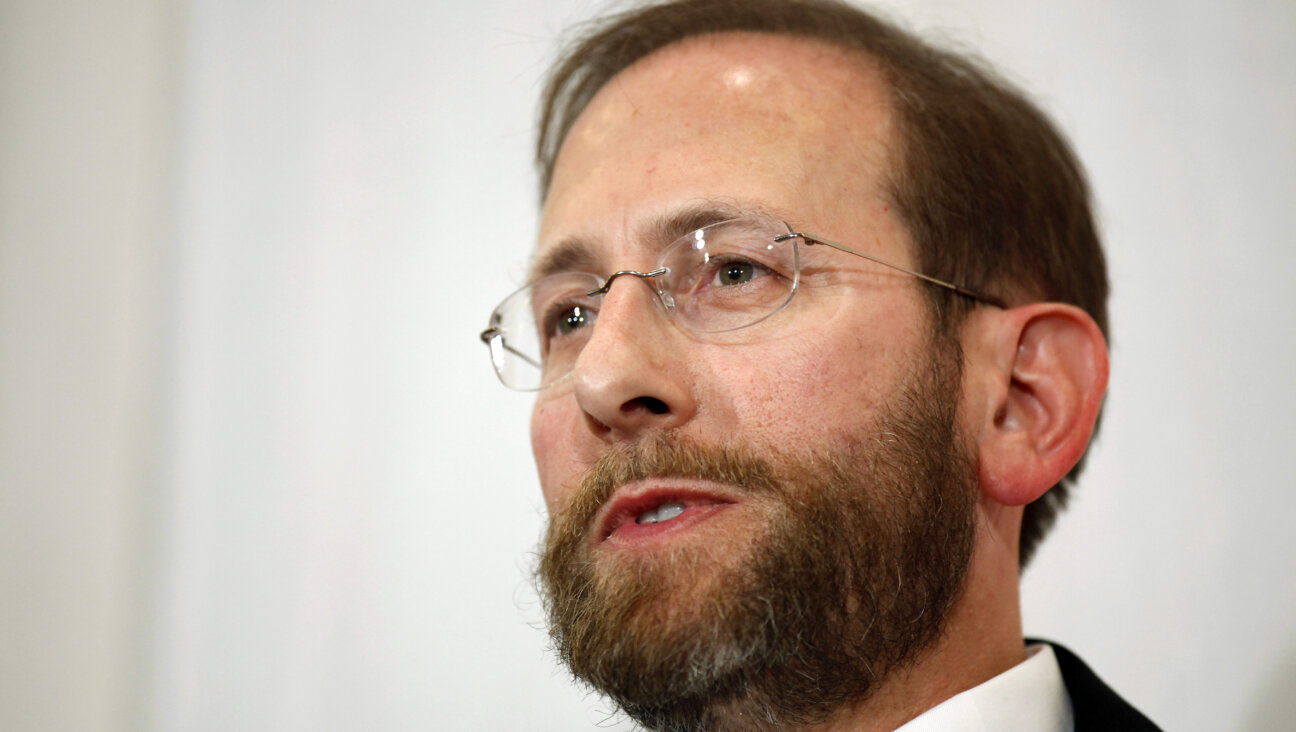Attachment to Israel Declining Among Young American Jews
American Jews’ connection to Israel drops off with each subsequent generation, a new study suggests.
The authors of the study, sociologists Steven M. Cohen and Ari Kelman, found a consistent increase in alienation in each younger generation, with middle-aged Jews less attached to Israel than older Jews, and younger Jews less attached than middle-aged Jews.
“Every measure indicates a decline of attachment to Israel” from one generation to the next, Kelman, a sociologist at the University of California, Davis, told the Forward.
While the waning relationship between American Jews and Israel has been documented in past studies, the new survey, entitled “Beyond Distancing,” provides the most in-depth statistical picture to date of American Jewish attitudes toward Israel and the extent of the disaffection.
Cohen and Kelman used a broader variety of questions than past studies have to gauge attachment and alienation among different generations of Jews. They found that young adult Jews were less attached to Israel than any other living generation of Jewish adults. This low level of attachment was consistent across the political spectrum, independent of party affiliation or ideological attachment. The authors concluded that the changes are likely generational and permanent.
“Insofar as younger Jews are less attached to Israel,” the authors wrote, “the inevitable replacement of the older population with younger birth cohorts leads to a growing distancing in the population overall.”
Cohen and Kelman used a series of questions about Israel to gauge connection. Eighty percent of Jews over age 65 said that “caring about Israel is an important part of being Jewish,” compared with 72% of those 50-64 years old, 64% of those 35-49, and 60% of those under 35. From these responses, the authors compiled an index of overall attachment. They found that nearly 40% of Jews over 65 were found to be highly attached, compared with just over 20% of Jews under 35. The numbers are almost exactly reversed for low attachment, with more than 40% of Jews under 35 registering low attachment, compared with 20% of Jews over 65.
The one life-cycle event that Cohen and Kelman did point to as significant was intermarriage of Jews with non-Jews. Cohen, who has been an outspoken opponent of intermarriage, said that much of the rise in alienation and decline in attachment among younger generations could be accounted for by the rising levels of intermarriage.
The survey did make some unusual choices, particularly by choosing to exclude the responses of Orthodox Jews, who tend to have the closest connection to Israel. Cohen explained that this was done for two reasons: first, because the statistical sample of Orthodox responses was too small, and second, because Jewish policymaking’s focus is on non-Orthodox Jews.
Ted Sasson, a senior scholar at Brandeis University’s Cohen Center for Modern Jewish Studies, said the study was “important and interesting.” He objected, however, to the author’s prediction of what the findings might mean for the future. Sasson said that the data underpinning the study provided a snapshot of current attitudes, not a trend.
One finding that Cohen, Kelman and Sasson could all agree upon was the positive influence of a trip to Israel. Cohen and Kelman’s study found that attachment levels increased dramatically, particularly among young Jews, after a trip to Israel. This confirmed previous studies, including one co-authored by Sasson, that had documented the rising sense of Jewish attachment among participants in Birthright Israel’s free trips to Israel.
Cohen and Kelman’s Israel study is one in a series of studies they will be writing for the Andrea and Charles Bronfman Philanthropies to explore various aspects of identity among young American Jews. The Bronfman Philanthropies are a founder and sponsor of Birthright Israel.
Roger Bennett, vice president of the Bronfman Philanthropies, has long advocated the importance of understanding the identities of young Jews on their own terms and creating programs that respond in kind.
Bennett said that though the findings of the study were dramatic, he saw no cause for alarm. “It’s a rallying call to roll up our sleeves and move to action,” he said.
The Forward is free to read, but it isn’t free to produce

I hope you appreciated this article. Before you go, I’d like to ask you to please support the Forward.
Now more than ever, American Jews need independent news they can trust, with reporting driven by truth, not ideology. We serve you, not any ideological agenda.
At a time when other newsrooms are closing or cutting back, the Forward has removed its paywall and invested additional resources to report on the ground from Israel and around the U.S. on the impact of the war, rising antisemitism and polarized discourse.
This is a great time to support independent Jewish journalism you rely on. Make a gift today!
— Rachel Fishman Feddersen, Publisher and CEO
Support our mission to tell the Jewish story fully and fairly.
Most Popular
- 1

Opinion The dangerous Nazi legend behind Trump’s ruthless grab for power
- 2

News Who is Alan Garber, the Jewish Harvard president who stood up to Trump over antisemitism?
- 3

News Student protesters being deported are not ‘martyrs and heroes,’ says former antisemitism envoy
- 4

Opinion What Jewish university presidents say: Trump is exploiting campus antisemitism, not fighting it
In Case You Missed It
-

Culture This Jewish New Yorker survived the Holocaust and the Hungarian Revolution, and is still helping others today
-

Fast Forward Trump says he and Netanyahu are ‘on the same side of every issue’ following talks on Iran, tariffs
-

Fast Forward California school board members accused of antisemitism during contentious meeting
-

Fast Forward Over 100 Chicago-area rabbis and cantors condemn Trump’s campus crackdown
-
Shop the Forward Store
100% of profits support our journalism
Republish This Story
Please read before republishing
We’re happy to make this story available to republish for free, unless it originated with JTA, Haaretz or another publication (as indicated on the article) and as long as you follow our guidelines.
You must comply with the following:
- Credit the Forward
- Retain our pixel
- Preserve our canonical link in Google search
- Add a noindex tag in Google search
See our full guidelines for more information, and this guide for detail about canonical URLs.
To republish, copy the HTML by clicking on the yellow button to the right; it includes our tracking pixel, all paragraph styles and hyperlinks, the author byline and credit to the Forward. It does not include images; to avoid copyright violations, you must add them manually, following our guidelines. Please email us at [email protected], subject line “republish,” with any questions or to let us know what stories you’re picking up.















